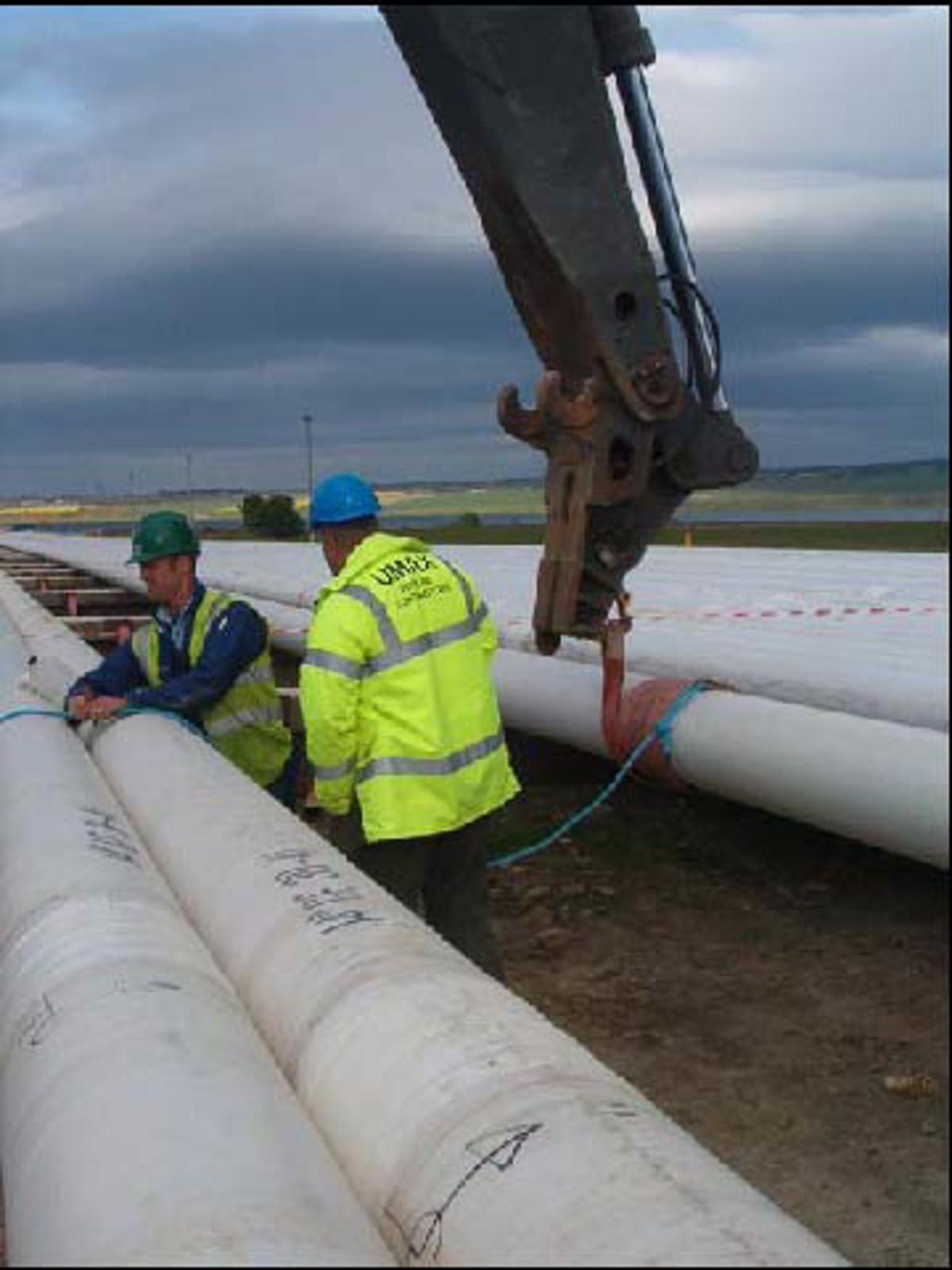Serious injury during pipestalk rolling operation
- Safety Flash
- Published on 22 June 2006
- Generated on 15 July 2025
- IMCA SF 08/06
- 2 minute read
Jump to:
A Member has reported an incident that occurred recently during planned, ‘routine’ pipe stalk rolling operations at a spool base. The incident resulted in serious injuries to one person.

What happened?
At a fabrication facility, lengths of pipe are welded into 1 km long pipe stalks, which are stored on pipe racks prior to spooling onto a pipelay vessel. The pipe stalks can, where required, be repositioned by rolling them across the pipe racks. This is a ‘routine’ operation, involving a minimal amount of lifting at the mid-point of the pipe stalk to induce a rolling momentum.
The injured person was assisting with planned pipe stalk rolling operations when he became entangled in a tag-line that subsequently trapped and held him against the rolling pipe stalk. He was carried over the top of the rolling pipe stalk and crushed between that pipe stalk and the one adjacent to it.
As a result, he sustained fractures to both legs and serious internal injuries. First aid was administered on site and he was immediately transported to hospital.
Investigation into the incident noted the following:
- Although only a minimal amount of lifting at the mid point of the pipe stalk was involved, this activity had not been recognised as a lifting operation and, therefore, the appropriate level of control and supervision had not been applied.
- There was evidence that, while a safety management system was in place, the procedures and risk assessments used to control the work had not been adequate.
- The task was being carried out by competent, experienced personnel, who had completed the task without harm many times before. Nevertheless, there was evidence that the personnel involved were unaware of the risk assessments and procedures in place and worked to custom and practice, rather than to procedures.
The company has noted the following lessons to be drawn from the incident:
- Tag-lines are useful, often essential, attachments to assist in controlling a load. However, all personnel should be acutely aware of the potential risk of snagging or entanglement of themselves or other equipment when using tag-lines and ensure that they position themselves safely away from the load.
- The same level of compliance with procedures; and awareness and control of risk should be applied to ‘routine’ work as to higher risk, and non ‘routine’ activities, particularly where lifting operations, however ‘routine’ or low-level, are involved.
IMCA Safety Flashes summarise key safety matters and incidents, allowing lessons to be more easily learnt for the benefit of the entire offshore industry.
The effectiveness of the IMCA Safety Flash system depends on the industry sharing information and so avoiding repeat incidents. Incidents are classified according to IOGP's Life Saving Rules.
All information is anonymised or sanitised, as appropriate, and warnings for graphic content included where possible.
IMCA makes every effort to ensure both the accuracy and reliability of the information shared, but is not be liable for any guidance and/or recommendation and/or statement herein contained.
The information contained in this document does not fulfil or replace any individual's or Member's legal, regulatory or other duties or obligations in respect of their operations. Individuals and Members remain solely responsible for the safe, lawful and proper conduct of their operations.
Share your safety incidents with IMCA online. Sign-up to receive Safety Flashes straight to your email.